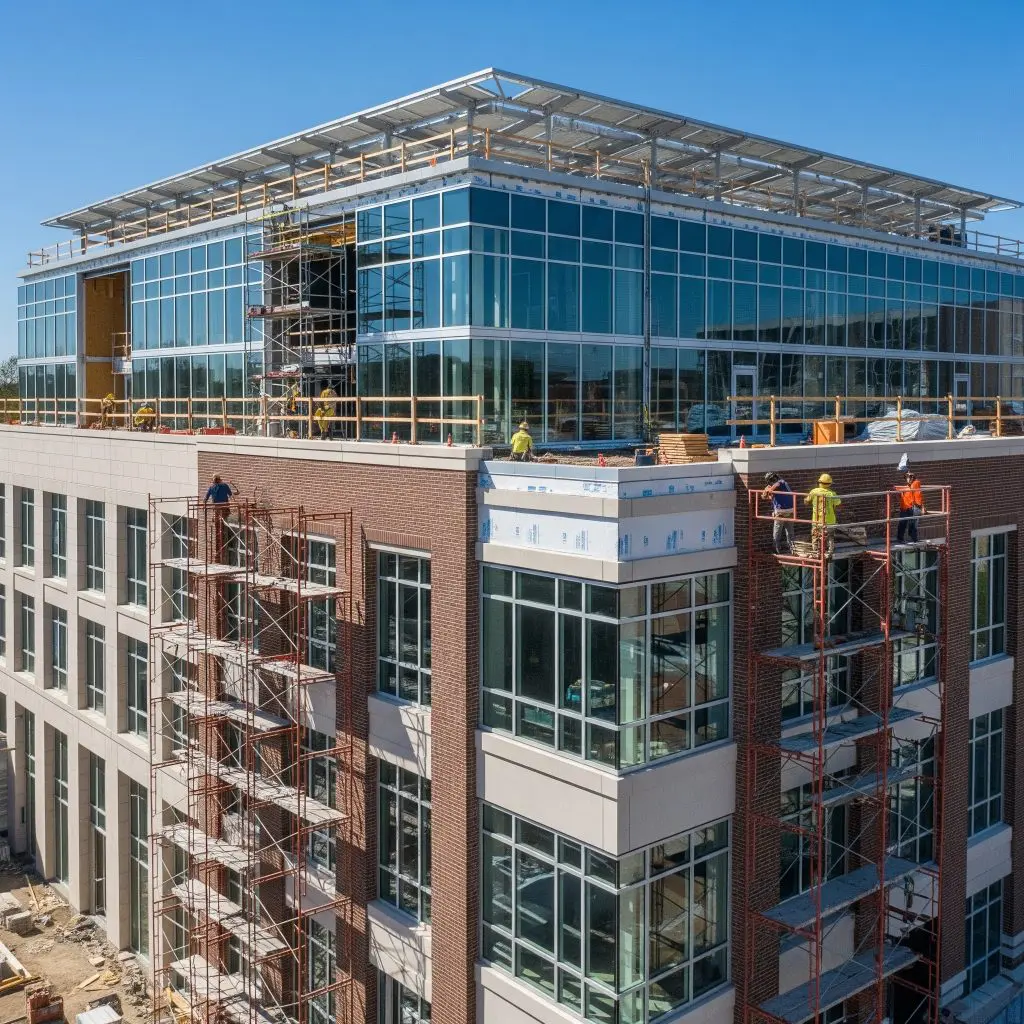Securing Seed Money: Can a Startup Get an SBA Loan with No Revenue?
Miami – October 29, 2025: The dream of launching a new business often requires significant capital. For many entrepreneurs, an SBA loan—with its low down payment and long repayment terms—seems like the perfect launchpad. But for a startup with no revenue, the crucial question is: can a startup get an SBA loan with no revenue?
The short answer is: It’s extremely challenging, but not entirely impossible, especially if you have a strong plan and significant personal resources.
SBA loans, particularly the popular SBA 7(a) Loan, are primarily designed for established businesses that can demonstrate a clear ability to repay the loan from their business cash flow. Lenders need proof of viability, and past revenue is the most common indicator.
However, a lack of existing sales doesn’t automatically disqualify you. This guide will clarify the realities, detail the requirements for new businesses, and show you how to maximize your chances with a specialized lender like GHC Funding.
Startup SBA Loan with No Revenue in Florida
- The Reality Check: Why Revenue Matters for SBA Loans
- Current Market Insights: Rates and Requirements (As of October 29, 2025)
- GHC Funding: Your Go-To Lender for Startup SBA Loans
- Funding Startups Across Florida ☀️
- Essential Resources for Florida Small Business Owners
- Q&A Section: Startup SBA Loan Queries
- Stop Dreaming, Start Funding: Take Action Today
- Get an SBA loan in Florida.
The Reality Check: Why Revenue Matters for SBA Loans
When you approach a lender for an SBA 7(a) loan, their primary concern is Debt Service Coverage Ratio (DSCR), which measures your company’s cash flow against its debt obligations. Without revenue, a startup’s DSCR is effectively zero, making traditional underwriting difficult.
For new businesses (typically defined as less than two years in operation), lenders shift their focus to alternative metrics:
- Projected Cash Flow: You must present detailed, defensible financial projections for at least two years. These projections must clearly show how the business will generate revenue, manage expenses, and service the debt.
- Industry Experience: Lenders want to see clear evidence that the principal owners have significant, successful experience in the industry they are entering. Your resume, references, and a rock-solid business plan become your “revenue.”
- Personal Financial Strength: All SBA loans require a Personal Guarantee from owners (typically those with a 20% or more stake). Your personal credit, net worth, and liquidity will be heavily scrutinized to mitigate the risk associated with an unproven business model.

Understanding the Key: Personal Resources and the Business Plan
Since business cash flow is missing, the lender must be convinced that the owners are committed and capable of filling the gap. This means preparing:
- A Significant Cash Injection/Equity: Lenders often look for the owners to contribute 10% to 30% of the project cost as equity.
- A Comprehensive Business Plan: This document must be meticulous, covering market analysis, operations, management team bios, and, most importantly, a detailed explanation of your pricing model, sales strategy, and expense forecasts.
Current Market Insights: Rates and Requirements (As of October 29, 2025)
While you’re technically a startup, the requirements you face will be those of the standard SBA 7(a) loan, as it is the most flexible product for working capital and general business use.
Interest Rates
SBA 7(a) loan interest rates are tied to the Prime Rate plus a maximum allowable spread. With the current Wall Street Journal Prime Rate around 7.25% (as of October 2025), expect rates to fall within the following variable ranges:
| Loan Amount | Maximum Variable Rate (Approx. Range) |
| Up to $\$50,000$ | $13.75\%$ (Prime + $6.5\%$) |
| $\$50,001$ to $\$250,000$ | $13.25\%$ (Prime + $6.0\%$) |
| Over $\$350,000$ | $10.25\%$ (Prime + $3.0\%$) |
Factors Influencing Your Final Rate:
- Personal Credit Score (most critical for startups): A personal FICO score of 680 or higher is often the minimum accepted, with a score in the 700s securing better terms.
- Strength of the Business Plan/Projections: A clear, conservative, and well-researched financial projection reduces lender risk.
- Amount of Owner Equity: A higher percentage of owner contribution can lead to a lower rate.
Are You an SBA Real Estate Loan Expert?

Test your in-depth knowledge on using SBA Loans for owner-occupied commercial Real Estate acquisition. These questions delve into the critical details that can impact your business's growth and financial strategy.
SBA 7(a) Loan Requirements That Benefit Startups
The SBA structure offers unique advantages over restrictive conventional startup loans:
| Feature | Benefit to the Startup Owner |
| Repayment Terms | Up to 10 years for working capital and equipment, and up to 25 years for real estate. This drastically lowers monthly payments, crucial for managing early-stage cash flow. |
| Down Payment | Typically, a minimum of 10% is required for startups or business acquisitions, which is much lower than the 20-30% often mandated by conventional bank loans. |
| Flexible Use of Funds | Can cover virtually all legitimate business expenses: equipment, inventory, payroll, advertising, and even working capital. |
| No Prepayment Penalties | Allows you to pay off the loan early if your business quickly becomes profitable, saving on interest (though penalties may apply on larger loans paid off in the first few years). |
GHC Funding: Your Go-To Lender for Startup SBA Loans
When you are a startup with no revenue, you need a lender that not only understands the SBA process but also knows how to identify the potential of a business model, not just its past earnings. This is why GHC Funding is uniquely suited to partner with ambitious entrepreneurs.
- Deep Expertise in Startup Underwriting: Large banks often use rigid formulas that instantly reject any pre-revenue business. GHC Funding’s expertise in providing SBA 7(a) loans, SBA 504 Loans, Bridge Loans, and Working Capital Solutions means they know how to properly weigh the intangible factors—your industry experience, market viability, and management depth—required for a successful startup application.
- Personalized Guidance Over Impersonal Processing: We don’t just process applications; we guide your financial narrative. We work with you to perfect your business plan and projections, ensuring the narrative of your future revenue is compelling and credible to the SBA. This personalized approach is invaluable when navigating the strict requirements for a new venture.
- Streamlined Application for Faster Approval: While the SBA process is detailed, GHC Funding works to ensure your paperwork is complete and submission-ready from day one. Our deep process knowledge helps minimize back-and-forth, aiming for a more efficient timeline compared to navigating the bureaucratic channels of large financial institutions.
Navigating SBA 7(a) Loans: An Essential Quiz for Small Business Owners

Test your knowledge on the SBA's most popular loan program, designed to fuel business growth and expansion - SBA 7(a) Loans!
Funding Startups Across Florida ☀️
Florida’s diverse economy—from tourism and real estate to technology and trade—makes it a prime location for new ventures. GHC Funding is committed to helping Florida’s startups get the funding they need.
- Miami’s Tech and Trade Hubs (ZIP 33130, Downtown): Startups focused on FinTech, international trade logistics, or specialized services in the Brickell and Wynwood commercial districts frequently need working capital to hire initial staff and manage high startup costs. An SBA 7(a) loan facilitated by GHC Funding is perfect for covering these essential pre-revenue expenses, allowing the team to focus on securing those first major contracts.
- Orlando’s Tourism & Technology Corridor (ZIP 32801, Lake Nona): New businesses supporting the hospitality supply chain, or those entering the booming Medical City life sciences sector, may require significant capital for inventory or highly specialized equipment. GHC Funding can structure a loan to fund these large fixed assets based on the owners’ strong personal finances and the business’s lucrative market potential.
- Tampa’s Manufacturing & Service Industries (ZIP 33602, Ybor City): A startup restaurant or a small manufacturing firm in the Tampa Bay area might need funds to purchase a building or secure a long-term lease, renovate the space, and buy equipment. The 7(a) or 504 programs, accessed through GHC Funding, can provide the 10-25 year terms needed to make these long-term investments feasible, even before the doors are officially open.
We understand the local economic landscape—from the seasonal shifts in Jacksonville (logistics) to the high-tech demands of Gainesville (research)—and tailor our strategy to match your business plan to Florida’s economic reality.
Mastering the SBA 504 Loan: Your Essential Guide Quiz

Test your knowledge on the SBA's most popular loan program, designed to fuel business growth and expansion.
Essential Resources for Florida Small Business Owners
To successfully navigate the startup phase, financing must be paired with expert advice. Here are key Florida resources:
- SBA South Florida District Office: https://www.sba.gov/district/south-florida – Your local connection to federal programs and official guidance.
- Florida Small Business Development Center (SBDC) Network: https://floridasbdc.org/ – Provides no-cost business consulting, including invaluable assistance with developing your financial projections and business plan.
- SCORE Florida Chapters: https://www.score.org/find-mentor – Connect with volunteer, experienced business mentors who can advise on your startup strategy.
- Florida Chamber of Commerce: https://www.flchamber.com/ – A powerful network for connecting with the statewide business community and potential partners.
- Florida Business Development Corporation (FBDC): https://fbdc.net/ – A private, non-profit organization that partners with the SBA to provide 504 financing in Florida.
Test Your Florida Investment Prowess!

Florida, the Sunshine State, is a magnet for residents, tourists, and, increasingly, real estate investors. With its diverse markets, from bustling metropolises to serene coastal towns, understanding Florida's unique landscape is crucial for anyone looking to enter the investment property game, especially when exploring options like no income verification rental property loans for new investors.
How well do you know the state that offers unparalleled investment opportunities? Take our quiz and find out!
Q&A Section: Startup SBA Loan Queries
Q1: How long must my business be operating to qualify for an SBA loan?
A1: While the SBA doesn’t mandate a minimum time, most lenders prefer two years of operating history. For pre-revenue startups, you must compensate with a detailed 2-year projection, significant owner equity, and outstanding personal credit/industry experience.
Q2: Will a new business with no revenue automatically be rejected for an SBA 7(a) loan?
A2: No, not automatically. You will likely be rejected by lenders who lack experience with startups. However, an experienced SBA lender like GHC Funding will review your application based on the strength of your business plan, your personal financial position, and your verifiable industry expertise.
Q3: What can I use the funds for as a pre-revenue startup?
A3: SBA 7(a) funds are flexible and can be used for initial working capital (inventory, payroll, advertising), equipment purchases, leasehold improvements, and even purchasing real estate that will be occupied by the business.
Q4: Do I need perfect personal credit if my business has no revenue?
A4: Your personal credit is more important for a startup than an established business. While “perfect” isn’t required, most lenders look for a personal credit score of $\mathbf{680}$ or higher to mitigate the perceived risk of lending to an unproven venture.
Q5: What’s the benefit of the SBA 7(a) over a microloan for a startup?
A5: SBA Microloans are capped at $\$50,000$. The SBA 7(a) can provide up to $\$5$ million. If your startup requires significant capital for equipment, large inventory orders, or real estate, the 7(a) loan is the only viable SBA option.
Q6: What is the minimum down payment for a startup loan?
A6: The down payment (owner equity injection) for a startup is typically a minimum of 10% of the total project cost. Lenders prefer higher injections as it demonstrates greater commitment from the owners.
Q7: Is my house always required as collateral for a startup SBA loan?
A7: For loans over $\$50,000$, the SBA requires lenders to collateralize the loan with available business and personal assets. If business assets (like new equipment or real estate) don’t fully secure the loan, the owner’s personal real estate is typically included as additional collateral via the Personal Guarantee.
Stop Dreaming, Start Funding: Take Action Today
The road to securing capital for a startup with no revenue is undeniably steeper, but the long-term benefits of an SBA loan—low payments, long terms, and flexible use—are worth the effort. By focusing on a meticulously crafted business plan and leveraging the strength of your personal financials and industry expertise, you can overcome the challenge of pre-revenue lending.
Don’t let the complexity of the SBA process frustrate your aspirations. GHC Funding specializes in turning ambitious startup plans into funded realities. We offer the personalized guidance and expertise needed to showcase your potential to the SBA.
Take the first step toward launching your Florida business today. Contact GHC Funding for a consultation on your startup’s financing needs!
Visit www.ghcfunding.com or call us at 833-572-4327.

